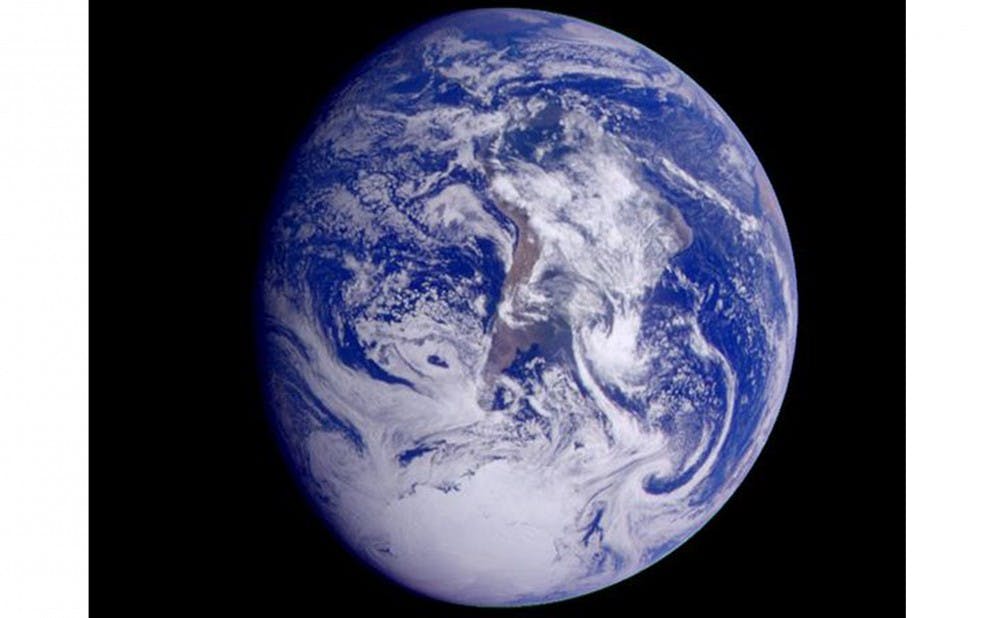Imagine yourself looking upon a vast plain. Buffalo graze among the company of cattle egret. You can hear the rattling of insects in the grass as the sun beats down, iridescent and uncompromising. The animals graze apathetic of your presence, too preoccupied with the great hedge maze of genetics to catch a whiff of your sunscreen. One buffalo nuzzles her young, and you begin to ponder the animal’s inscrutable, familiar behavior.
You hear a voice in your head. It is origin-less, untraceable. It begins to explain to you that buffalo often segregate their herds by gender. It describes the muscular composition of the stoic beast’s shoulder hump. The voice is the perfect companion for the miracle you behold. It is gentle, almost playful, never distracting from the artless spectacle of creation.
What does that voice sound like?
There is only one way to answer this question: wizened, upbeat, British. If you’ve had any sort of life, you hear David Attenborough’s voice.
If you’ve never heard of the glorious nature documentarian of which I write, I don’t know whether you deserve pity or envy. For over half a century, Attenborough has pioneered and perfected the nature documentary. His voice has lent legitimacy to myriad projects: “The Life of Birds,” “The Blue Planet,” “Life” and “Planet Earth,” to name a (very) few. He has given tens of millions an irreplaceable peek into unimaginable corners of our natural world.
I can say with confidence that nobody has ever been better at his job than David Attenborough is at his. He has, more than any artist alive, transcended his art form: If you make a nature documentary and David Attenborough doesn’t narrate it, did you even make a nature documentary?
Luckily, the makers of “Planet Earth II” didn’t think so. Despite being 90 years old, Attenborough has returned as the narrator of the BBC’s greatest nature documentary to date. Only two episodes have been released, but already it is clear that we’ve never seen the natural world like this.
Attenborough gives voice to the harrowing endeavor of survival. Multiple-hundred pound kimono dragons brawl with each other for the right to mate. Penguins dive into waters tumultuous enough to make Ahab blush, all in the name of feeding their young. A baby iguana delivers an action sequence so unprecedented in its drama, I had to remind myself I was watching an educational program. All of this in the first episode of “Planet Earth II.”
Despite all of the splendor of nature, perhaps the greatest wonder is Attenborough. In the first shot of the series, the nonagenarian Attenborough, ever the definition of whimsy, floats in a hot air balloon above snowy mountains. He lays out the scope and the stakes of his new work.
“We can now show life on our planet in entirely new ways, bring you closer to animals than ever before, and reveal new wildlife dramas for the very first time. But that’s not all,” he cautions. “Our planet has changed, too. Never have those wildernesses been as fragile and as precious as they are today.”
It’s a transcendent message of unity through conservation. Attenborough loves the natural world so much, he just wants to share it with everyone, even those of us who may not yet exist.
Please indulge David Attenborough. Allow him to share. If you fail to devour the feat of human excellence that is “Planet Earth II,” you are doing yourself a disservice. The BBC’s epic serial simultaneously documents and transcends the natural world. The tireless, ingenious production crew is to thank for the former. Attenborough is to worship for the latter. He is truly larger than life.
Get The Chronicle straight to your inbox
Signup for our weekly newsletter. Cancel at any time.

